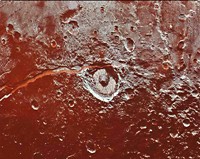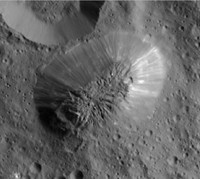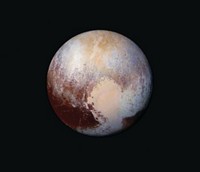Advertisement
Grab your lab coat. Let's get started
Welcome!
Welcome!
Create an account below to get 6 C&EN articles per month, receive newsletters and more - all free.
It seems this is your first time logging in online. Please enter the following information to continue.
As an ACS member you automatically get access to this site. All we need is few more details to create your reading experience.
Not you? Sign in with a different account.
Not you? Sign in with a different account.
ERROR 1
ERROR 1
ERROR 2
ERROR 2
ERROR 2
ERROR 2
ERROR 2
Password and Confirm password must match.
If you have an ACS member number, please enter it here so we can link this account to your membership. (optional)
ERROR 2
ACS values your privacy. By submitting your information, you are gaining access to C&EN and subscribing to our weekly newsletter. We use the information you provide to make your reading experience better, and we will never sell your data to third party members.
Environment
Ancient Mars Had Enough Water For A Giant Ocean
New data suggest 20% of Red Planet’s surface was covered by ocean
by Elizabeth K. Wilson
March 5, 2015
| A version of this story appeared in
Volume 93, Issue 10
As shown in this computer simulation, 4.5 billion years ago, some 20% of Mars’s surface was blanketed by a water ocean. That’s according to a new study of water molecules in the Red Planet’s atmosphere (Science 2015, DOI: 10.1126/science.aaa3630).
Although scientists have known Mars was once wet, observations have been localized and seasonal, limiting a global perspective of Mars’s water. Now, researchers at NASA Goddard Space Flight Center, led by space scientists Geronimo L. Villanueva and Michael J. Mumma, report using Earth-based telescopes to observe the ratio of water and its deuterium-containing counterpart, DHO, over the entire planet.
The researchers, who made measurements over three martian years, found that water molecules, especially those near Mars’s polar regions, are highly enriched in deuterium. This implies that over time, lighter, regular water (H2O) has escaped into space, leaving the heavier DHO behind. According to the group’s models, the planet has lost 87% of its water over several billion years. This amount of water could have formed an ocean up to a mile deep, covering about 20% of the planet’s northern area.
“With Mars losing that much water, the planet was very likely wet for a longer period of time than was previously thought, suggesting the planet might have been habitable for longer,” Mumma says.






Join the conversation
Contact the reporter
Submit a Letter to the Editor for publication
Engage with us on Twitter